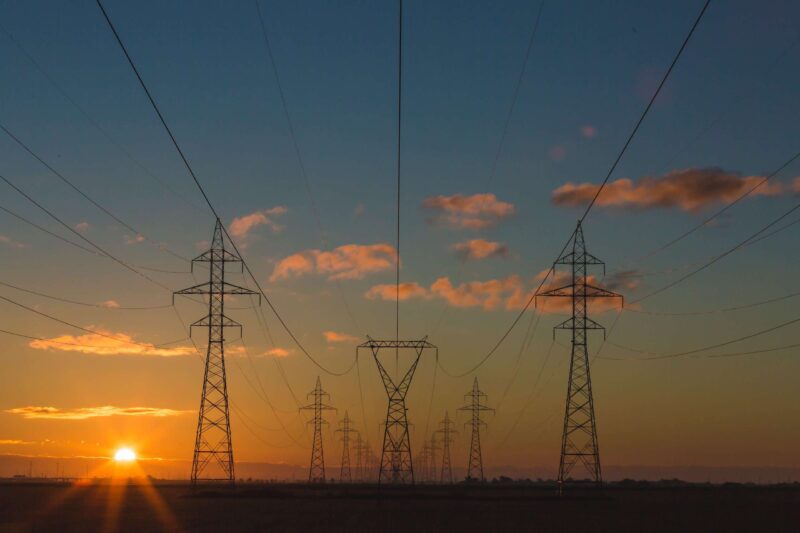7 Ways to Prepare for the Next Energy Price Hike
The energy price crisis is far from over and is going to hit us all, so how can we prepare?
Bills are set to rise again in October 2022 and January 2023 against the backdrop of the cost-of-living-crisis, our bank balances are really feeling the sting.
Rent Guarantee Insurance for £299
- ✓ Covered for £2,500 per month
- ✓ Claim up to £25,000
- ✓ Free access to legal advice
But these seven actions could help you save a few quid, a headache or two, and even do a little bit to save the planet!
How did we get here?
Before we look at how you can prepare and protect yourself, let’s understand how this crisis happened:
- To keep energy bills manageable, the government limits how much energy suppliers can charge each year
- When wholesale gas prices shot up, suppliers needed to pass on some of the cost to the consumer, so the cap was raised in October 2021, then again in January 2022, and is set to rise again at least once more, creating ‘fuel poverty’ for thousands
- Russia’s war on Ukraine led to even higher prices because Russian supply lines to Europe are affected
- The UK government and some suppliers and charities are offering help to those most in need
- Analysts claim it could take around three years for the energy price crisis to resolve
We’ve got 7 tips for you to help you ride out the crisis

1) Tend to your tenants
Chances are that if you’re reading this, you’re already pretty proactive, so take this approach to your tenants. Help them find information on how to improve energy efficiency in a rented home and ask if they know how to compare and switch tariffs.
Your tenant may have already gone fact-finding, but there is nothing to lose by having a kind word. They’ll see that you’ve put some thought into their situation, which is bound to have a positive impact on your relationship and encourage free and open communication.
2) To include or not to include?
All-inclusive landlords: Now is a good time to ask the question: does it make sense to include the bills?
If you rent out an HMO or student accommodation it can save hassle all round if you include all bills in the rent. Higher energy bills won’t change this, but cautious forward planning is key.
You’ll likely find yourself in the position of upping the rent. True, no tenant likes the rent going up, but they may be glad of having a fixed amount to pay you in this time of uncertainty.
Another option is an agreement whereby each occupant pays you a percentage of the utility bills. This gives some flexibility and dodges the issue of under/overpaying.
If you rent out your property(ies) excluding bills, now probably isn’t the time to switch to all-inclusive unless your tenant profile is changing. Professional couples, single people and families like to have the option of choosing their supplier and tariff – this won’t change any time soon.
3) Don’t panic
Switch in haste, repent at leisure. If you think energy bill rises are steep, you should see some of the tariff exit fees – a whopping tenfold increase from this time last year in some cases. When you sign up to a tariff, you’re also signing up to stick with that tariff for a minimum amount of time. Leave early, and you’ll almost certainly face an exit fee.
There is nothing more soul-crushing than believing you’ve saved yourself some cash with a new deal, then getting stung on the way out of the old one. Do your homework, read the small print – then read it again!

4) Avoid the void
Naturally, as landlord you’re responsible for all bills during a so-called void period, so when your property is empty, get your meter key out and give a reading as soon as the tenant moves out, and then regularly after, until just before a new tenant moves in.
Why be so pernickety, you ask? The energy supplier won’t know the property’s empty and will bill you based on what it costs when the home is occupied. Plus, timely readings mean that everyone – old tenant, you, new tenant – pays for exactly what they use.
And, of course, do what you can to keep void periods to a minimum.
5) Guarantee your rent
Unless your tenant happens to be an oil tycoon, higher energy bills mean harder-up tenants, which means a higher chance of rent arrears. With the cost-of-living soaring, more tenants will be deemed (according to affordability calculations) to need a guarantor.
In addition to a guarantor, Rent Guarantee Insurance is a wise move. It can pay your rental income while you and the tenant work together to resolve any temporary cash flow snags.
6) Invest in efficiency
Energy efficiency standards are set to increase in the next few years, so if you’ve been snoozing on insulation and double glazing, take the leap. If nothing else, it’ll save you money in the periods between tenants, and will help your tenants keep on top of bills during this time of price hikes.
If you’re replacing any appliances, opt for a high energy rating, and check your existing appliances for any with a terrible rating, as it might be time to retire them before you arrange your next EPC.
One of a number of wallet-boosting, green improvements, heat pumps are increasingly popular too, so consider whether now’s the time to spring for one.
7) Look after yourself
Don’t forget to do what you can at home to keep your own costs down, as well as your stress levels. Producing and sticking to a budget for your property(ies) will also help you not to overstretch yourself, our free Expense Tracker can help with this.
Don’t forget, there is help available for homeowners in the form of advice and various grants, so be sure to make use of anything you can.